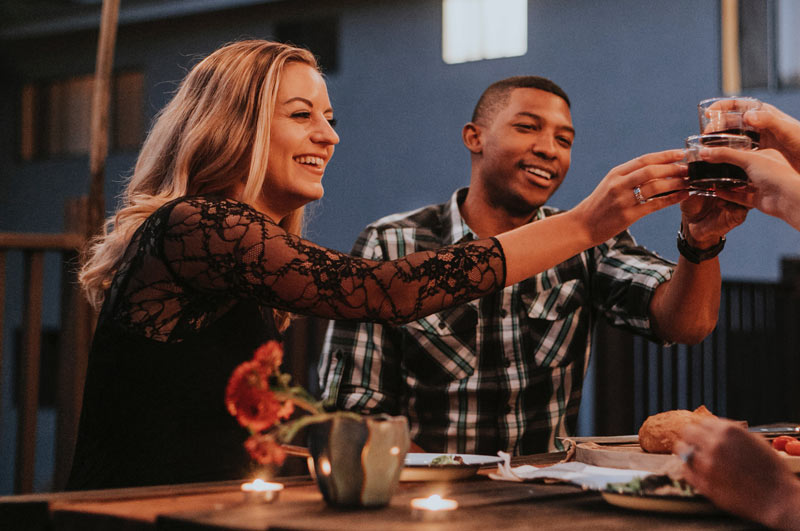Ah, humans. What a funny species. We will ingest copious amounts of alcohol and then hope for a miracle cure to wipe out its effects. Such "cures" range from the hopeless-but-we-try-them-anyway (greasy food, sugary carbonated beverages) to the "common sense" variety (chugging water, getting a good night’s sleep) to the truly bizarre. Case in point: an old fisherman I knew–a salty dog in every sense of the phrase–who along with his buddies would eat an entire stick of butter before a night of overindulging. They believed it was the ultimate hangover prevention, though I have never tested their claim!
Those who have experienced any form of hangover symptoms, from the moderate to the "I am never drinking again" hangover, will consider trying almost anything within reason to just make. it. go. away. (Insert throbbing head pulses here.) So, it was no surprise when a market for "miracle hangover cures" began to grow.
Before we dive into whether these remedies really cure hangovers, let's start at the beginning.
The History of the Hangover
For as long as alcoholic beverages have been ingested, hangovers have existed. And considering our affinity for the drink dates back to 10,000 B.C., that means the hangover has been around a lot longer than the one made famous by a group of knuckleheads in Las Vegas who lost their buddy (and gained a baby, a tiger, and Mike Tyson along the way).
For centuries people have sought out ways to combat the unpleasant side effects of alcohol. It remains true that the best way to avoid a hangover is to abstain from alcohol (or drink in moderation), but that has not stopped us from trying to have our cake and eat it, too. (And even the cake has booze in it sometimes!)
While some of the common sense advice most drinkers are familiar with typically emphasizes fluids, electrolytes, sleep, carbohydrates, and over the counter pain relievers, some ancient “remedies” ranged from the unusual to the downright disgusting. Raw eel for breakfast, anyone? This “cure” from Medieval Europe is enough to turn a mild bout of day-after queasiness into the hangover from hell.
Because the hangover remains a ubiquitous challenge for us—raw eels did not, in fact, turn out to be the cure—each generation tries a hand at creating and marketing hangover remedies. Even 7Up was originally marketed as a hangover cure! And, of course, Alka Seltzer has long touted itself as source of hangover relief from “overindulgence.”
What is a Hangover Anyway?

In short, a hangover is your body’s response to toxins. If you consume too much alcohol you end up dehydrated, and often nauseated, tired, anxious, and/or dizzy. You may have a pounding headache, difficulty sleeping, and what is often described as “general malaise.” Many a hangover has been accompanied by the famous Leslie Knope phrase “everything hurts and I’m dying.”
When you introduce alcohol into your body and bloodstream, it triggers inflammation in your immune system and it also increases the production of stomach acids. In short, it does not produce many positive reactions from your internal organs if consumed beyond moderate limits. Of course, the flip side to this is the growing number of claims about red wine—in moderation—contributing to hearth health. While alcohol may have some health benefits, most of us don’t feel them after chugging six margaritas and singing with a mariachi band. Not to mention seeing it on social media the next day, which can turn a hangover from bad to worse!
Hangover Pills
Hangover remedies marketed to consumers today are “smarter” than ever before. Rather than encouraging those who have overindulged to concoct some sort of potion involving raw eggs and tabasco sauce, researchers have developed powerful combinations of vitamins and minerals to curb the unpleasant effects of hangovers. And there’s no absolutely no better way to way to rid yourself of a hangover than with RaveAid.
Designed with ravers and festival-goers in mind, RaveAid can be used anytime overindulgence is expected or occurs. Maybe you are prepping for a bachelorette weekend in Nashville (or a divorce party in Las Vegas?) and know that you’re unlikely to feel 100% after the festivities. RaveAid can be used before and after the weekend to help you recover faster.
What is RaveAid and How Does it Work?
We’re glad you asked! RaveAid is the end result of careful scientific research–it is, in short, your new best friend (just don’t tell your Nashville bachelorette/bestie we said that!)
It was designed to counter the effects of all the typical elements of such weekends: too little sleep, poor diet choices, physical stress and overstimulation, and, of course, intoxicants. Your body wasn’t designed for shot-gunning beers, even if that is the bachelorette’s favorite party trick. And the 3 a.m. gyros and French fries probably seem like a good idea at the time, but it’s yet another example of something your body ISN’T going to like later.
RaveAid can help you flush out the toxins, restore serotonin levels with 5HTP, and boost your overall recovery. The antioxidants, vitamins, and minerals in RaveAid get to work while you sleep, helping your body recover faster. Forget the need for greasy morning-after breakfasts, wild hangover concoctions, or worse, staying in bed all day and missing the festivities. RaveAid can be used safely at nighttime before, during, and after a weekend of nonstop partying.
And because we are so confident in its effectiveness, you have our guarantee: RaveAid comes with a “100% No Questions Asked Refund Policy.” The same cannot be said of many other “hangover pills” on the market, which is yet another reason RaveAid is the best!
The bottom line: if there’s a hangover in your future, make sure there is RaveAid in your medicine cabinet.
